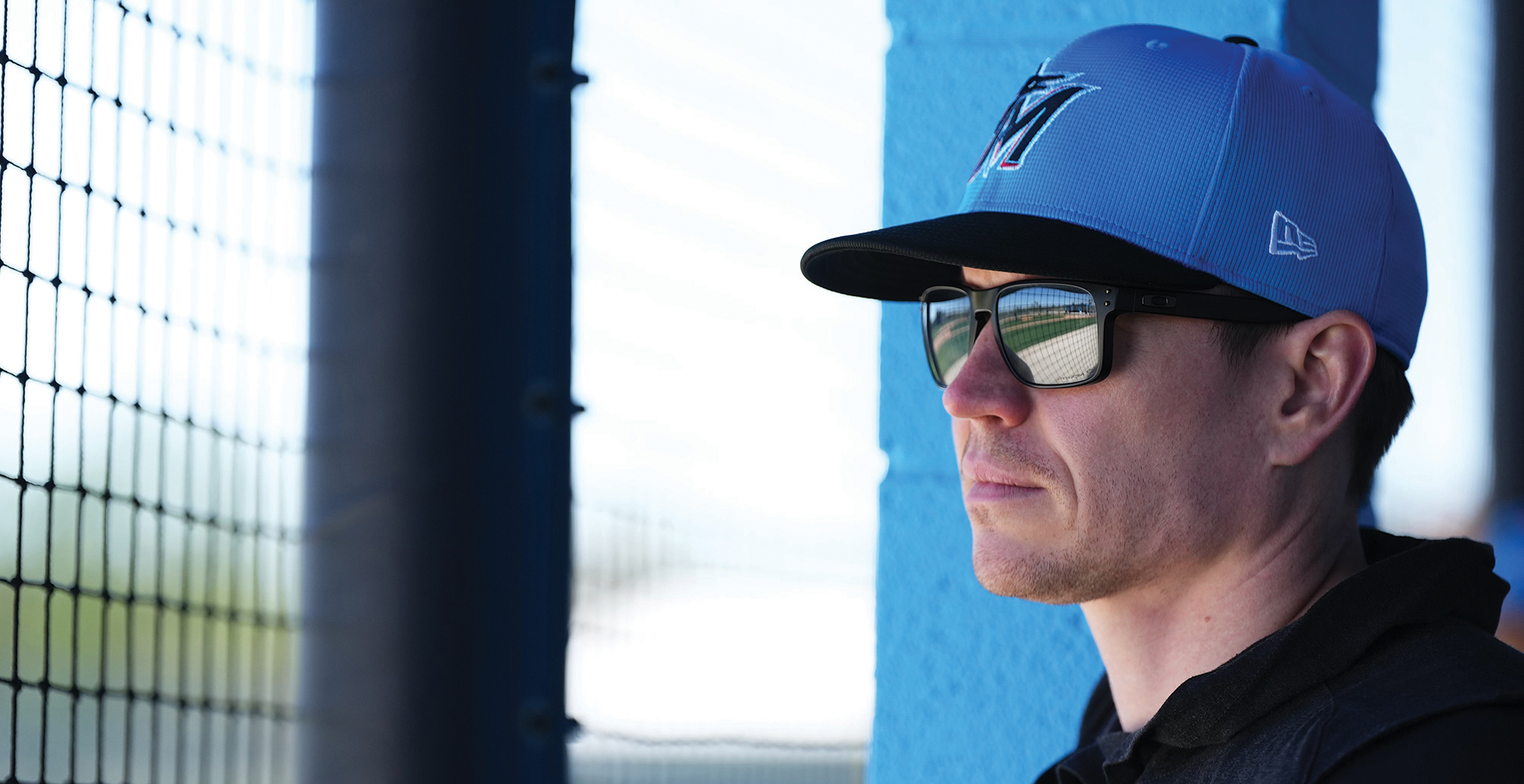
Marius Aleksa, AB’12, helps baseball players get past the strikeouts.
Marius Aleksa, AB’12, mental skills coach with the Miami Marlins baseball team, has a simple analogy to explain the difference between mental health and mental skills. If an athlete is having mental health issues, “it’s like having an injury,” he says, so they would see a doctor or therapist.
In contrast, Aleksa’s job centers on performance. He helps players handle the mental side of the game, so their physical performance is the best it can be: “Optimizing,” he says. “What are you doing well? How do we get even better? It’s like going to a strength and conditioning coach.”
A psychology major and varsity swimmer at UChicago, Aleksa earned a master’s degree in performance psychology at National University. Before joining the Marlins in 2023, he was a mental performance coach at the US Army Special Warfare Center and School, where he worked with soldiers training to become Green Berets.
5
The number of school swimming records Aleksa set at UChicago—even though he was a walk-on. “I considered myself an athlete first, and it really helped me be the best student that I could be,” he says. “With the rigorous course load at UChicago, if I’m not on top of my studies, I’m not getting the grades that I want. So I’m stressing about that, which is going to bleed into my athletic performance.”
7
The grade Aleksa taught through Teach for America in Detroit. “When you do classroom management with seventh graders, those lessons translate to working with soldiers and baseball players. Because sometimes grown men can be like seventh graders.
“I absolutely love Detroit. It’s got similar Midwest blue-collar vibes as Chicago, and everyone has so much pride and love for the city. I lived and taught in downtown Detroit. Then on the weekends I was a coach at a swimming club in the suburbs. That’s when I solidified that I wanted to do coaching.”
162
The number of games per year he attends with the Miami Marlins—that is, all of them. “I’m fully embedded with the team. I try to create the conditions so the players know they can approach me and talk to me, but I’m not going to force the issue.”
7 out of 10
The number of times the best batters don’t get a hit. “The big thing in baseball is, what’s your relationship with failure? If you’re failing only seven times out of 10—at the end of the season, if you have a .300 batting average—you’re going to be pretty happy. But in the moment, you’re not getting on base.
“We see some blowups. Sometimes if it’s their third, fourth strikeout of a game, a player might come in the dugout and throw something. Have a little fit. If it’s not harming anyone—if that’s their way of getting it out and it puts them in a better position to go up to that next at-bat—I don’t have a huge issue with it.”
